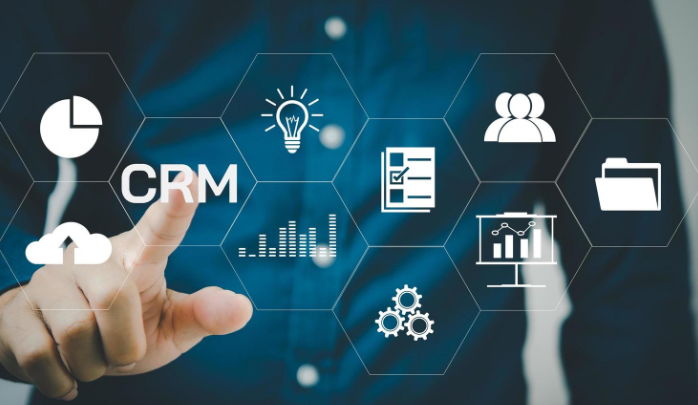In today’s digital world, implementing a mortgage CRM system has become essential for lenders seeking to streamline their operations, enhance customer experience, and improve overall efficiency. By digitizing the process of collecting customer information, eliminating paperwork, and providing advanced functionalities, lenders can revolutionize the way they handle mortgage applications. This article explores the myriad benefits of implementing a mortgage CRM system and how it can transform the lending process.
Digitizing the Collection of Customer Information: Eliminating Paperwork
With a mortgage CRM system in place, lenders can bid farewell to the hassle of manual paperwork. By centralizing customer information in a digital platform, all relevant data is readily accessible and securely stored. This not only saves time and effort but also ensures the accuracy and integrity of customer information.
Effortless Data Input for Borrowers: Portals and Mobile Apps
The CRM system enables borrowers to effortlessly input their personal and financial details through user-friendly portals or mobile apps. This user-centric approach not only saves time for both the lender and the borrower but also reduces errors in the data collection process. As a result, loan applications can be processed faster and more efficiently.
Document Management Capabilities: Organization, Storage, and Retrieval
One of the key features of a mortgage CRM system is its document management capabilities. Critical files such as income statements, tax returns, and credit reports can be seamlessly uploaded, organized, and stored in a centralized system. This eliminates the need for physical file storage and streamlines the process of retrieving and managing important documents.
Automated Compliance Features: Ensuring Proper Documentation and Regulatory Requirements
Compliance with regulations is crucial in the mortgage industry. A mortgage CRM system automates the compliance process by providing alerts and reminders to ensure that all necessary documentation is properly completed and regulatory requirements are met. This helps lenders avoid costly penalties and time-consuming audits.
Seamless Communication Between Lenders and Borrowers: Email Integration, Online Chat, and Document Sharing
Effective communication plays a vital role in the mortgage process. A mortgage CRM system facilitates seamless communication between lenders and borrowers through various channels, including email integration, online chat, and document sharing functionalities. This streamlines the exchange of information, keeps all parties informed, and ensures a smooth and transparent lending experience.
Real-Time Insights Through Reporting Tools: Loan Application Status, Funding Ratios, Application Turnaround Time, etc
A mortgage CRM system offers powerful reporting tools that provide lenders with real-time insights into their loan application pipeline. Lenders can track loan application status, funding ratios, application turnaround time, and more. These insights enable lenders to make data-driven decisions, identify bottlenecks, and implement strategies to enhance efficiency and productivity.
Utilizing Advanced Analytics to Identify Bottlenecks for Improved Efficiency
In addition to reporting tools, a mortgage CRM system leverages advanced analytics capabilities to provide lenders with deeper insights into their lending operations. By analyzing data patterns, lenders can identify bottlenecks, streamline processes, and optimize workflows. This helps improve efficiency, reduce costs, and enhance the overall lending experience.
Integrations with Other Systems: Electronic Signature Platforms, Credit Bureaus, Underwriting Systems
A mortgage CRM system can seamlessly integrate with other systems, such as electronic signature platforms, credit bureaus, and underwriting systems. These integrations automate various tasks throughout the lending process, further minimizing manual effort and reducing the risk of errors. The result is a more efficient and streamlined end-to-end mortgage origination process.
Simplifying data collection, enhancing accuracy, and streamlining the loan origination process significantly reduces the time and effort required for loan origination through a mortgage CRM system. The streamlined process not only improves customer satisfaction but also enables lenders to handle a higher volume of loan applications without sacrificing quality.
Implementing a customized mortgage CRM system revolutionizes the way lenders handle mortgage applications. By eliminating paperwork, digitizing the collection of customer information, and providing advanced functionalities, lenders can significantly enhance efficiency and productivity. Seamless communication, automated compliance features, real-time insights, and integrations with other systems further streamline the lending process. By adopting a mortgage CRM system, lenders can declutter their desks from piles of paperwork, improve customer experience, and boost productivity in their operations.

